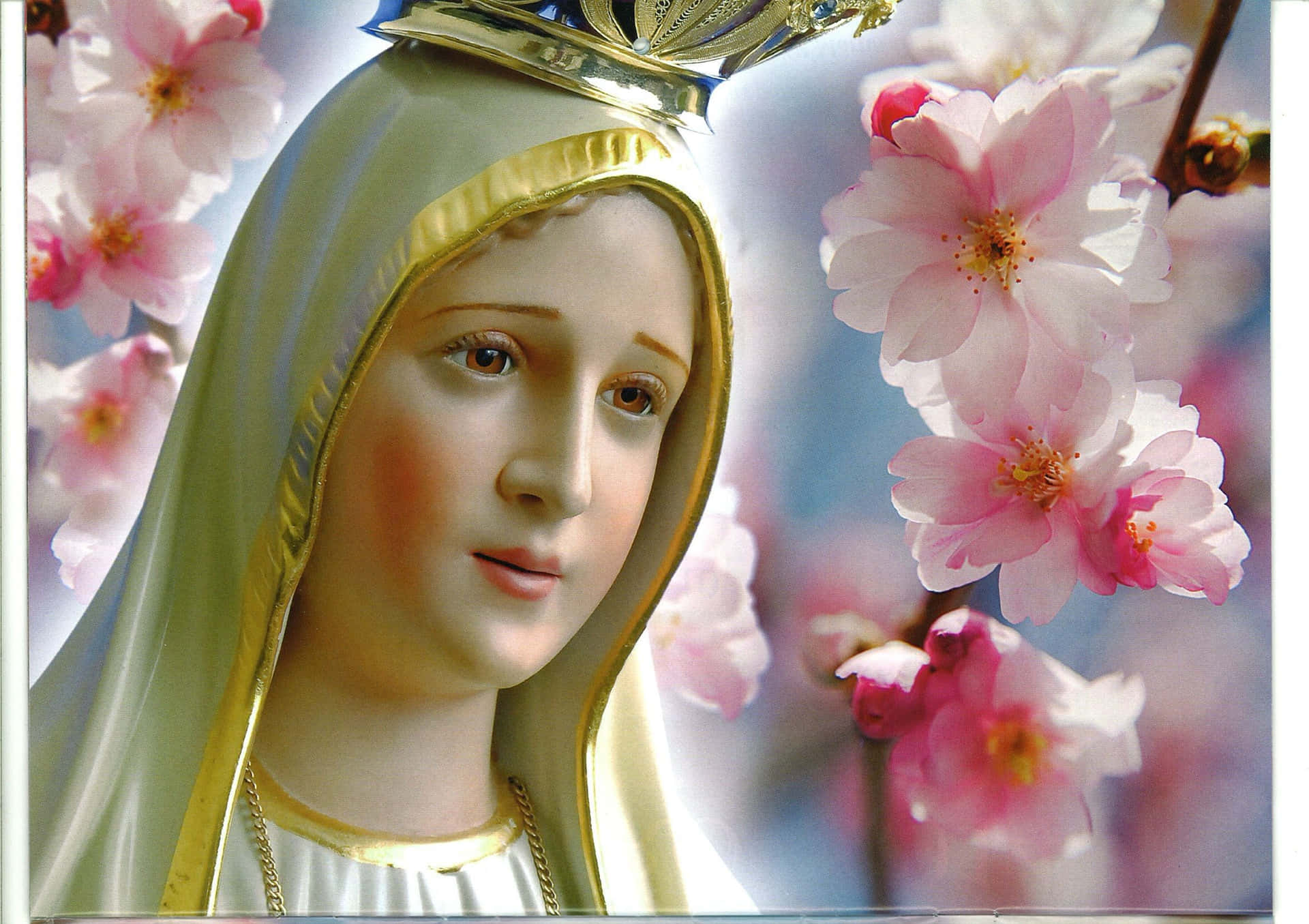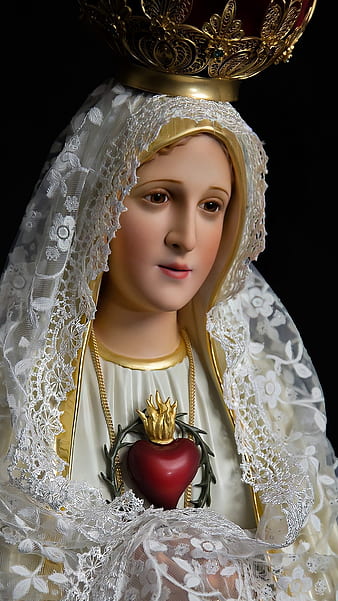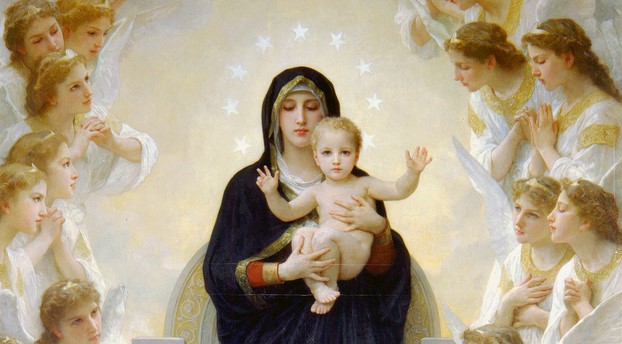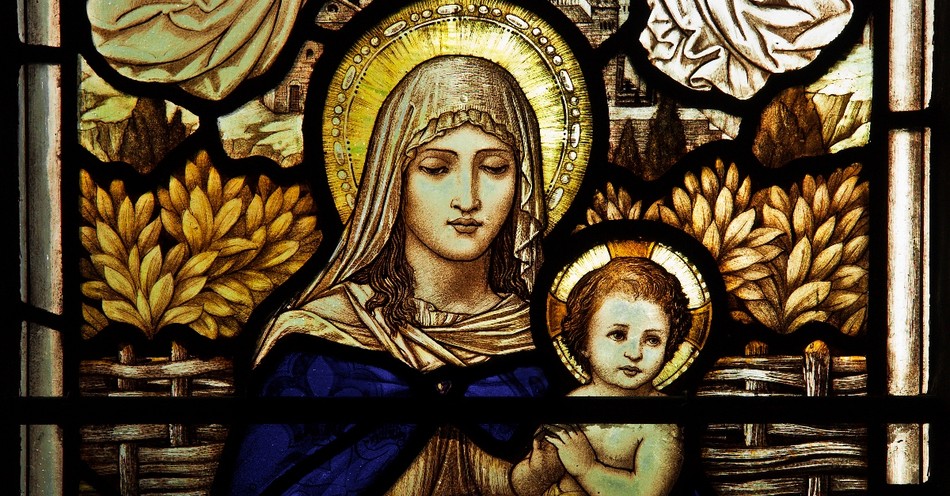Mary's Elevated Role within Catholic Theology: A Marian Christological Analysis
Introduction
The Virgin Mary occupies a position of singular reverence within Roman Catholicism. This article undertakes a multifaceted theological examination of Mary's elevated status, focusing specifically on the concept of her queenship. We will explore its scriptural foundations, its doctrinal evolution, and its implications for Catholic spirituality. Key concepts integral to this analysis include Marian doctrines (e.g., the Immaculate Conception, Perpetual Virginity, and the Assumption), Christology (the study of Jesus Christ), and the theological function of intercessory prayer within the Catholic faith. These concepts will be analyzed through established theological frameworks, contextualized within the historical development of Catholic doctrine and Marian piety. We will employ systematic theology, drawing upon scriptural exegesis, conciliar pronouncements, and the patristic tradition to illuminate the complex interplay of faith and reason in shaping Marian theology.
1. Mary: Theotokos and the Incarnation: A Foundation in Christology
The title "Theotokos," meaning "God-bearer," conferred upon Mary at the Council of Ephesus (431 CE), is paramount to comprehending her unique role. This title unequivocally affirms the divinity of Jesus Christ, recognizing Mary as the mother of the incarnate Son of God. This christological affirmation establishes Mary's pivotal position within the divine economy of salvation. The Council of Ephesus exemplifies the application of conciliar authority in clarifying and solidifying theological understanding, highlighting the dynamic interaction between scriptural interpretation and reasoned theological discourse within the ecclesial framework. This resonates with the hermeneutical principle of interpreting scripture within the broader context of tradition and ongoing theological reflection.
2. Perpetual Virginity: A Theological Interpretation of Scripture and Tradition
The doctrine of Mary's perpetual virginity, though not explicitly detailed in all biblical passages, represents a long-standing belief within the Catholic tradition. This belief emphasizes her purity and holiness, portraying her as the uniquely chosen instrument through which God entered the world. This demonstrates the application of theological interpretation, building upon scriptural accounts and integrating them with established tradition. The diverse interpretations of Matthew 1:25 highlight the challenges and complexities involved in reconciling seemingly disparate scriptural passages and the role of hermeneutical principles in navigating these interpretative nuances. This process underscores the organic development of theological understanding over centuries.
3. Mary as the New Eve: A Typological Interpretation of Redemptive History
The comparison between Mary and Eve offers a potent theological lens for understanding Mary's role. While Eve's disobedience initiated humanity's fall from grace, Mary's obedience, expressed in her "fiat" ("Let it be") at the Annunciation, reversed this trajectory, ushering in salvation through her Son. This interpretation employs typology, a hermeneutical method that identifies parallels between Old Testament figures and events and their New Testament counterparts. This typological approach emphasizes the redemptive work of Jesus Christ, with Mary playing a crucial mediating role in God's plan of salvation. The application of this model illuminates the interconnectedness of salvation history, highlighting the continuity between the Old and New Testaments.
4. The Assumption: Eschatological Hope and Marian Glorification
The dogma of the Assumption, proclaimed by Pope Pius XII in 1950, asserts Mary's bodily ascension into heaven. Rooted in early Christian tradition and consistent with the belief in Christ's resurrection, this doctrine elevates Mary to a position of unparalleled glory, prefiguring the ultimate destiny of all believers. This illustrates the ongoing process of theological reflection, informed by tradition and scripture, leading to the development of new doctrines that further articulate and clarify the Church's understanding of faith. The papal proclamation exemplifies the application of magisterial authority in defining and clarifying theological concepts, ensuring doctrinal consistency throughout the Church.
5. Queenship: Intercession and Mediation within the Divine Economy
The title "Queen of Heaven and Earth" signifies Mary's exalted position and her role as intercessor for humanity. This concept builds upon the understanding of Mary's role in the economy of salvation, building upon her role as Theotokos. The imagery of a queen interceding for her people provides a relatable analogy for Mary's role as advocate before her Son. This analogy, while providing a tangible framework for understanding her role, does not diminish the transcendent nature of her queenship. It demonstrates a creative theological approach to communicating complex theological truths using accessible imagery.
6. Marian Devotion and the Saints: A Sociological and Anthropological Perspective
The profound devotion to Mary expressed by countless saints throughout Church history underscores the significant impact of her role within the spiritual lives of believers. These expressions of piety demonstrate the lived experience of Marian devotion, providing practical examples of the belief’s influence on personal faith. Analyzing the writings and actions of the saints offers a valuable sociological and anthropological lens through which to understand the development and impact of Marian theology within the context of religious practice. This approach emphasizes the social and cultural dimensions of faith, showing how theological concepts are embodied and expressed in diverse ways.
7. Mary as Spiritual Mother: A Theological Understanding of Maternal Bond
Jesus' entrustment of Mary to John at the crucifixion ("Woman, behold your son!… Behold your mother!") suggests a spiritual motherhood extending to all believers. This maternal role fosters a profound spiritual connection between believers and Mary. This interpretation applies biblical exegesis and theological reflection to establish the concept of spiritual motherhood within the Catholic faith, further enriching the understanding of Mary’s role in the life of the believer. This approach uses a relational model to understand the connection between Mary and the faithful.
8. Intercessory Power: Scriptural Examples and Theological Implications
The miracle at Cana, where Mary intercedes with Jesus, exemplifies her intercessory role. Her actions serve as a model for the faithful, illustrating the power of prayer and the importance of seeking Mary's intercession. The application of this scriptural event underscores the importance of utilizing biblical narratives to illustrate and reinforce theological concepts, connecting abstract theological ideas to concrete examples within the context of faith. This demonstrates the practical application of scriptural examples in shaping religious beliefs and practices.
Conclusion and Recommendations
The Catholic understanding of Mary's elevated role is deeply rooted in scripture, tradition, and rigorous theological reflection. This analysis has demonstrated the application of diverse theological concepts and hermeneutical methodologies to understand her position as Queen of Heaven and Earth. Future research could explore the diverse expressions of Marian devotion across various cultural contexts, examining how the concept of Mary's queenship has been adapted and interpreted globally. A comparative theological study exploring variations in Marian theology across different Christian traditions would further illuminate the unique perspectives on Mary’s role within Catholicism. Furthermore, a focused examination of Mary's intercessory role could analyze its efficacy, psychological impact, and theological implications within the context of prayer and faith. The interpretation and application of these concepts requires careful consideration, balancing theological precision with pastoral sensitivity and an awareness of the varied perspectives within the broader Christian landscape.
Reader Pool:
Considering the multifaceted dimensions of Mary's role presented in this analysis, how might a nuanced understanding of Marian theology contribute to a more robust and enriching contemporary Catholic spiritual experience?








No comments yet. Be the first to share your thoughts!